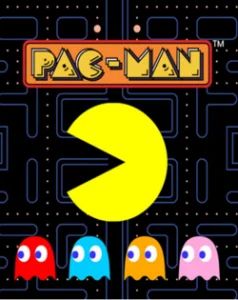Okay, bear with me. I know, mentioning Pacman and store management in the same breath might sound a bit crazy. But stick around! You see, even simple games can offer surprising insights into core concepts, and in this case, the iconic Pacman 30th Anniversary. serves as a quirky but effective microcosm of managing resources and prioritizing objectives – essential skills for any budding store owner (or anyone just wanting a fun, retro gaming experience!).
This isn't a tutorial on beating Pacman; it's about viewing the game through a different lens – as a simple, arcade-style management simulator. Let's dive in!
Gameplay: A Mini-Market in a Maze
At its heart, Pacman 30th Anniversary is a game of efficient resource gathering and risk management. Your character, the ever-hungry Pacman, navigates a maze, tasked with gobbling up pellets (our stand-in for products) while avoiding ghosts (think: overhead costs, unexpected issues, or even competitor actions).
Resource Acquisition (Eating Pellets): Each pellet represents a unit of something you need for your business. Maybe it's inventory, raw materials, or even customer satisfaction points. Collecting them efficiently is crucial. You can't just wander aimlessly; you need a strategy for maximizing your intake.
Inventory Management (Power Pellets): The power pellets give Pacman a temporary boost, allowing him to turn the tables and devour the ghosts. These are like your special promotions, seasonal sales, or unexpected influxes of capital. They're powerful but temporary, and you need to use them strategically.
Risk Assessment (Ghost Encounters): The ghosts represent potential threats to your business. Blinky (red), Pinky (pink), Inky (blue), and Clyde (orange) each have unique behaviors, forcing you to adapt your strategies. This mirrors real-world scenarios where you need to understand different market trends and competitor strategies to survive. Getting caught by a ghost (going bankrupt, losing a major customer) means game over.
Route Optimization (Navigating the Maze): The maze is your store layout, your supply chain, or even the entire market. Finding the optimal route to collect pellets while minimizing risk is paramount. This is akin to optimizing your store layout for maximum efficiency or streamlining your supply chain to reduce costs.
Level Progression (Clearing the Maze): Successfully clearing each maze (completing a successful quarter, reaching a sales goal) allows you to progress to the next, more challenging level. This simulates the growth and evolution of your business.
Pac-Tips: Applying the Arcade Wisdom to Business
So, how can playing Pacman 30th Anniversary actually help you think about store management? Here are a few key takeaways:
Prioritize Your Goals: Are you aiming for maximum pellet collection (high sales volume)? Or are you focused on risk aversion (avoiding losses)? Your strategy in Pacman, and in business, will depend on your priorities. If you chase every pellet, you'll be more vulnerable to the ghosts. Conversely, if you're too cautious, you'll miss out on opportunities. Finding the right balance is key.
Know Your Competition: Just like you need to understand the ghosts' patterns to survive, you need to understand your competitors' strategies. Are they aggressive? Are they predictable? Adapting your approach based on their behavior is crucial for maintaining a competitive edge. Observe their actions, analyze their pricing, and understand their target audience.
Manage Your Resources Wisely: Power pellets are precious. Don't waste them chasing a single ghost! Similarly, special promotions or capital injections should be used strategically to maximize their impact. Think long-term, not just short-term gains.
Plan Your Route: Random wandering gets you nowhere. Map out your route to maximize pellet collection while minimizing your exposure to risk. In store management, this translates to efficient logistics, optimized store layouts, and well-defined marketing strategies.
Adapt to Change: The ghosts' behavior can change. New challenges emerge. You can't rely on the same strategy forever. Be prepared to adapt your approach as the game evolves (and as the market changes). This includes everything from adjusting pricing strategies to adopting new technologies.
Learn from Mistakes: Getting caught by a ghost (failing in Pacman) is frustrating, but it's also a learning opportunity. Analyze what went wrong and adjust your strategy for the next attempt. In the business world, mistakes are inevitable. The key is to learn from them and avoid repeating them.
Conclusion: Gamifying Your Business Thinking
While Pacman 30th Anniversary certainly isn't a replacement for a proper business simulation or management course, it offers a fun and accessible way to visualize core concepts. It's a simple, engaging way to think about resource management, risk assessment, and strategic planning.
So, next time you're feeling nostalgic and fire up Pacman 30th Anniversary, try playing it with a different mindset. See if you can spot the parallels between dodging ghosts and navigating the challenges of the business world. You might just surprise yourself with the insights you gain. After all, even the simplest games can teach us valuable lessons. Now, go chase those pellets… and maybe make some smart business decisions along the way!